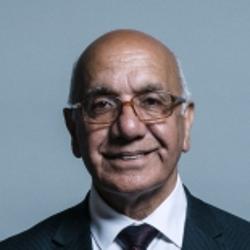Gurkhas: Pensions
(asked on 18th November 2022) - View SourceQuestion to the Ministry of Defence:
To ask the Secretary of State for Defence, if he will take steps to increase existing Gurkha medical pensions to the British Army rate; and if he will make a statement.
The Government greatly values the unique contribution that the Gurkhas have made and continue to make to the UK, and remains committed to providing Gurkhas a fair pension, including uplifts determined by formal review processes.
Gurkha terms and conditions of service were initially set by the 1947 Tripartite Agreement and were altered as the Brigade’s circumstance changed over the years. Since 2007 Gurkhas have served on the same basis as the remainder of the British Army apart from specific conditions to maintain the Brigade of Gurkhas.
Since 2007, Gurkhas have also received the same pension under the Armed Forces Pension Scheme (AFPS) as the rest of the UK Armed Forces. Gurkhas who had served beyond 1997 were given the option to transfer to the Armed Forces Pension Scheme. For those who served prior to 2007, the 1948 Gurkha Pension Scheme (GPS) provides a pension over their lifetime at least as good, and in many cases better, than that given to their British counterparts with identical periods of service. Whilst GPS pensions are smaller, most are paid for longer; from as early as age 33, whereas the AFPS pays a pension only from age 60/65.
The Defence Secretary has not had discussions with Cabinet colleagues regarding uprating legacy Gurkha pensions as retrospective changes or improvements generally are not made to public service pension schemes. This policy applies across the whole of the public sector.
The GPS remains linked to the Indian Army pension scheme. Changes are introduced every 10 years when the Indian Central Pay Commission (CPC) adjusts the levels of pay and pensions for personnel in the Indian Army. A public consultation in 2020/2021 sought views on how the 7th CPC should be implemented in relation to the GPS.
Following the consultation, Ministers decided that 140% of the Indian rates, with a minimum of 10% for those already above 140%, was the most appropriate level to implement the 7th CPC for the GPS.
When the 7th CPC changes were implemented, the government also implemented new groupings and structures for disability pensions. Full information on legacy GPS Disability Pensions is available in the Gurkha Pension Scheme Manual, Chapter Three, available on gov.uk.
The government has also chosen to work with a charity, the Gurkha Welfare Trust (GWT), to provide healthcare for its veterans and their families in Nepal. The GWT is part-funded by a grant-in-aid from MOD, and in 2018, the Army made a grant of £25 million over ten years to the GWT, specifically to improve the provision of healthcare, including secondary care, for our veterans in Nepal.

